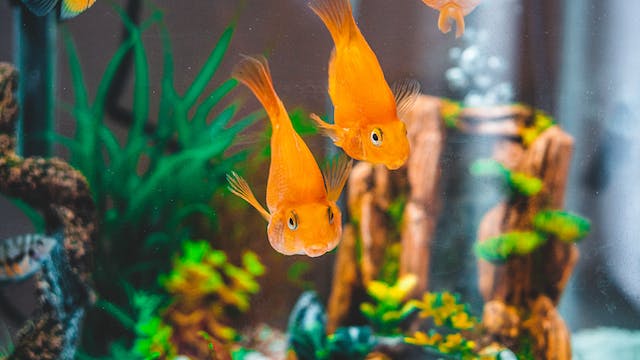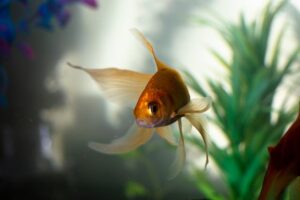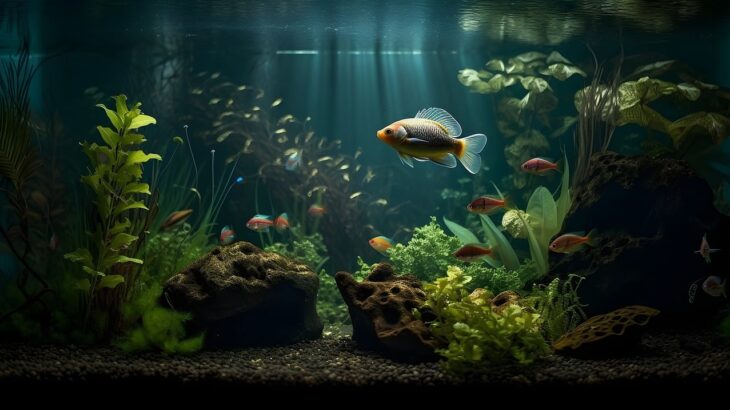Welcome to the wonderful world of aquarium care. Whether you’re a newbie or have been in the hobby for years, it’s important to understand that keeping an aquarium is more than just adding water and fish. It requires careful attention to detail and a commitment to creating a healthy environment for your aquatic friends. In this blog post, we will explore some common mistakes that many aquarium owners make and provide you with tips on how to avoid them.
Overfeeding
Overfeeding is a mistake that many aquarium owners fall into, often with good intentions. It’s easy to get carried away and believe that more food equals happier fish. However, overfeeding can lead to serious consequences for both your fish and the overall health of your tank. When you overfeed your fish, uneaten food accumulates at the bottom of the tank, polluting the water and creating a breeding ground for harmful bacteria. This can result in poor water quality, foul odors, and an increased risk of disease among your aquatic inhabitants. Additionally, excess food can cause bloating in fish, which can lead to digestive issues and even death in extreme cases.

Poor Filtration
One of the most common mistakes aquarists make is neglecting proper filtration in their aquariums. The importance of a good filtration system cannot be overstated, as it plays a crucial role in maintaining water quality and keeping your fish healthy. As stated by Ruth Francis-Floyd, DVM, “Poor water quality is the most common cause of environmentally induced diseases, assessing water quality is essential.” Inexpensive test kits are easy to use and provide reasonably accurate information. This can lead to an imbalance in the ecosystem, resulting in stressed fish, algae blooms, and even diseases. There are several factors to consider when it comes to filtration.
Lack of Research
When it comes to aquarium care, one of the most common mistakes that novice hobbyists make is a lack of research. It’s understandable – setting up an aquarium can be exciting, and sometimes, people just dive right in without taking the time to educate themselves on proper fish care. But here’s the thing: different fish species have different needs. Some require specific water conditions, while others may need a certain diet or tank size. Without doing your due diligence and researching these requirements beforehand, you run the risk of subjecting your fish to suboptimal living conditions.
Inadequate Quarantine Procedures
Aquarium enthusiasts often overlook quarantine procedures, but they play a crucial role in maintaining the health and well-being of your aquatic pets. Inadequate quarantine practices can lead to the introduction of diseases and parasites into your main tank, causing harm to your existing fish population. Let’s delve into why proper quarantine procedures are essential and how you can avoid making this common mistake. It is vital to understand that new fish or plants may carry unseen diseases or parasites. By introducing them directly into your main tank without quarantining them first, you run the risk of contaminating the entire ecosystem.
Ignoring pH and Temperature
 Ignoring pH and temperature levels in your aquarium can have serious consequences for the health and well-being of your fish. Many novice aquarists make the mistake of overlooking these crucial factors, but it’s important to understand their importance in maintaining a thriving aquatic environment. pH levels indicate the acidity or alkalinity of the water, while Temperature affects the overall comfort and metabolism of your fish. Failure to monitor and adjust these parameters can lead to stress, disease, or even death among your aquatic pets.
Ignoring pH and temperature levels in your aquarium can have serious consequences for the health and well-being of your fish. Many novice aquarists make the mistake of overlooking these crucial factors, but it’s important to understand their importance in maintaining a thriving aquatic environment. pH levels indicate the acidity or alkalinity of the water, while Temperature affects the overall comfort and metabolism of your fish. Failure to monitor and adjust these parameters can lead to stress, disease, or even death among your aquatic pets.
According to Diana Walstad, Microbiologist, “Maintaining water quality should be the top priority for every aquarium keeper. It’s the foundation for healthy fish and plant life.” Remember that every decision you make as an aquarium owner has an impact on the delicate balance within your tank. So take the time to educate yourself about the specific needs of your fish species and provide them with the clean, healthy habitat they deserve. With careful attention to detail and proactive care practices in place, you’ll not only prevent potential problems but also enhance the overall beauty and enjoyment of your underwater world. Happy fishkeeping.




 Improve sound quality and reduce echoes in your home theater with the addition of acoustic panels. These panels help create a balanced acoustic environment by absorbing excess sound. Brands like Auralex and ATS Acoustics offer a variety of panels in different sizes and designs to match your aesthetic preferences while optimizing audio performance. Consider your personal preferences, available space, and budget when selecting gadgets for your home theater.
Improve sound quality and reduce echoes in your home theater with the addition of acoustic panels. These panels help create a balanced acoustic environment by absorbing excess sound. Brands like Auralex and ATS Acoustics offer a variety of panels in different sizes and designs to match your aesthetic preferences while optimizing audio performance. Consider your personal preferences, available space, and budget when selecting gadgets for your home theater.

 If you’re feeling overwhelmed by all the supplements you’re taking, it’s essential to take a break from them now and then. This will give your body a chance to rest and recover from all nutrients. It’s also important to remember that supplements do not replace a healthy diet and lifestyle. So be sure to eat healthy foods and get plenty of exercises, even when you’re not taking supplements.
If you’re feeling overwhelmed by all the supplements you’re taking, it’s essential to take a break from them now and then. This will give your body a chance to rest and recover from all nutrients. It’s also important to remember that supplements do not replace a healthy diet and lifestyle. So be sure to eat healthy foods and get plenty of exercises, even when you’re not taking supplements. When starting any new supplement, it’s essential to start with the lowest dose possible and see how your body reacts. This is especially true if you take multiple supplements or have a sensitive stomach. Once you know how your body reacts to the supplement, you can increase the dosage as needed. We hope you found these tips on how to optimize your supplements helpfully. Remember, supplements are not a replacement for a healthy diet and lifestyle.
When starting any new supplement, it’s essential to start with the lowest dose possible and see how your body reacts. This is especially true if you take multiple supplements or have a sensitive stomach. Once you know how your body reacts to the supplement, you can increase the dosage as needed. We hope you found these tips on how to optimize your supplements helpfully. Remember, supplements are not a replacement for a healthy diet and lifestyle.